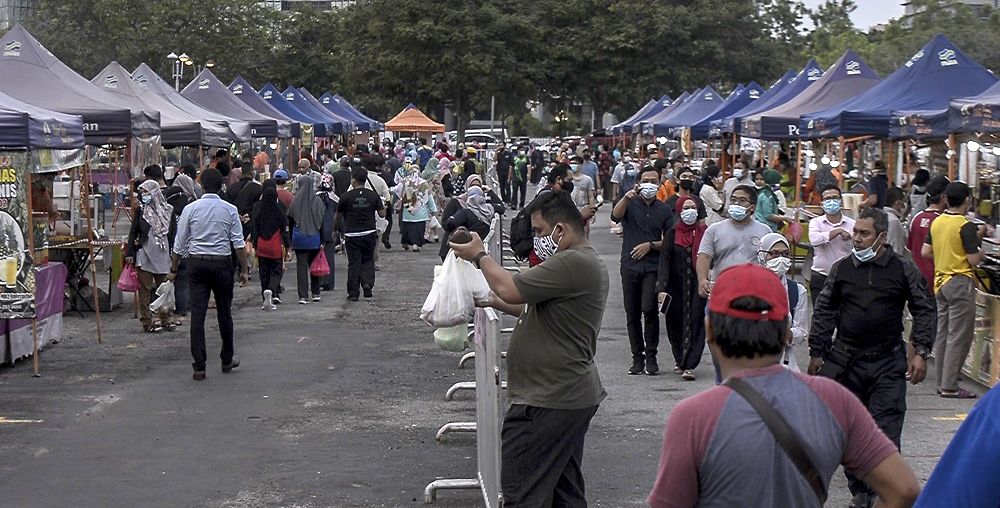MCO 2.0? Half-baked MCO? Fake lockdown? Nobody knows quite what to call it, and with SOPs seeming to change on a near-daily basis, confusion is running high.
Despite being technically called a Movement Control Order, netizens agree this one is nothing like the MCO we all endured at the onset of the coronavirus pandemic. That was a real lockdown. This time, it seems that almost everything – from crowded markets to daily traffic jams – is running just about normally, especially now that restaurants are allowed to have dine-in business again.
Most notably now, domestic travel is still not permitted, but industry groups and leaders are calling on the government to allow people to resume interstate travel before affected sectors wither and die completely.

For now, however, here are the regulations and SOPs covering the current MCO 2.0, which is scheduled to run through February 18, derived to the best of our knowledge from official sources:
- Restaurants and F&B outlets can now offer in-house dining, but limited to two persons per table with tables at least one metre apart.
- Gathering for festive celebrations, seminars, and group sports are not allowed. (Separate SOPs for Chinese New Year were announced, then criticised, revised, revised again following continued backlash, and re-announced.)
- Interstate travel is banned nationwide, and roadblocks are set up to enforce this.
- Travel is limited to a 10-km radius of your homes for the purchase of groceries and necessities, with a maximum of two passengers per car from the same family.
- Travel out of MCO areas for emergency cases is allowed with permission from the police.
- There is a fine of up to RM1,000 for violating the rules.
- Individuals caught violating the SOP rulings can be fined a maximum of RM1,000 under the Prevention and Control of Infectious Diseases Act 1988.
- Only five sectors categorised as ‘Essential Economic Sectors’ are permitted to operate during this period – manufacturing and production; construction; services; trade and distribution, and agriculture and commodities. Only 30% of employees in the management level are allowed in the office. A full list of businesses allowed to operate during the MCO period can be found at the Ministry of International Trade & Industry (MITI) website.
- For other businesses, work-from-home arrangements are mandatory.
- Markets and health facilities (clinics, hospitals, and pharmacies) may operate as usual.
- Students with major exams may attend face-to-face classes. Kindergartens can open. Others must be taught online.
- Outdoor recreational activities is allowed with family members and observing social distancing.
- Cycling must be within 10km of your home and not in groups.
- A maximum of five people can visit places of worship.
- More recently most retail outlets, hair salons, car wash centres, and night markets can open. All places have to close not later than 10pm.
- There is a fine of up to RM1,000 for violating the rules.
Despite an admittedly haphazardly implemented and frequently changing MCO, adhering to best-practice SOPs remains a key factor in curbing the spread of Covid-19. Wash your hands thoroughly and frequently, wear a good mask whenever in public, and observe physical distancing.

"ExpatGo welcomes and encourages comments, input, and divergent opinions. However, we kindly request that you use suitable language in your comments, and refrain from any sort of personal attack, hate speech, or disparaging rhetoric. Comments not in line with this are subject to removal from the site. "



















